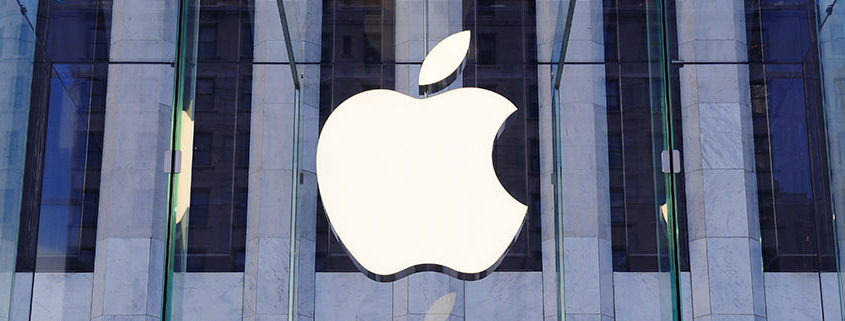Image: Songquan Deng / Shutterstock.com | Article by Simon Bowers | Featured on Guardian
Why must Apple repay Ireland €13bn in back taxes? And will this make multinationals more transparent in their tax affairs?
The European commission has ordered Apple to pay back the Irish state up to €13bn in taxes in a landmark ruling. Apple paid a tax rate on European profits of between 0.005% and 1%, according to the EU’s executive arm. The US technology group, and Ireland, have said they will appeal against the decision but it will have ramifications for countries and companies across Europe.
Why has the European commission ordered Ireland to claw back up to €13bn in tax from Apple?
The commission has found that Apple benefited from a sweetheart tax ruling granted by Ireland decades ago, saving the iPhone-maker huge sums in taxes over many years. The ruling was not only generous but gave Apple special tax treatment unavailable to competitors. As such, competition officials in Brussels have found it amounted to unlawful state aid under EU rules. The sweetheart deal allowed Apple to shift up to two-thirds of its global profits through a handful of Irish-registered companies that routinely paid less than 1% tax.
Are other companies in the line of fire?
Over the past four years the commission has been looking at similar generous tax deals handed out to multinationals, questioning whether they too amount to unlawful state aid. Tax rulings from Luxembourg and the Netherlands – granted to Fiat and Starbucks respectively – have already been found unlawful. In both cases the companies are appealing against the commission’s findings. Meanwhile, competition regulators are also investigating a tax deal from Luxembourg awarded to both McDonald’s and Amazon.
Will EU taxpayers benefit and will multinationals become more transparent with tax?
If the commission’s decision is not overturned on appeal, then Ireland will have to recalculate years of back taxes and send Apple a large bill. That will boost Ireland’s public purse, but in the longer term it may damage its reputation as one of the most attractive places for multinational companies such as Facebook and Google to locate their operations.
Will Ireland cease to be a tax haven for multinationals?
Ireland has been under pressure to ditch its most aggressive tax deals for multinationals for many years. Pressure comes not just from other European countries, but also from the US, where Ireland has been heavily criticised for helping big businesses hoard profits offshore, beyond the reach of the US tax authorities. The so-called “double Irish” tax structure, which has been used by Google, Facebook, Microsoft and Apple, is being phased out. However, Ireland has made sure it has other replacement tax breaks to keep multinationals from moving elsewhere.
Will this make US multinationals bring their cash piles home?
The last place American multinationals want to move profits is back home to the US, where the 35% headline tax rate is one of the highest in the world. While many big firms worry that Brussels may try to chase these huge cash reserves, they would prefer to be taxed in Europe than America so are unlikely to repatriate funds.
Can Apple afford to pay back €13bn?
Yes it can. The technology group – valued at $570bn on the stock market – has a cash stockpile of more than $230bn, of which more than 90% is kept outside the US so that it does not attract US tax. Therefore the ruling should not have a material impact on the group’s finances or its considerable research and development spending.
The €13bn represents more than a quarter of its last full year profits, which were $53.4bn and is equal to sales of 20m iPhone6 Plus handsets, at a current UK cost price of £539.
What does €13bn mean to Ireland?
It is a huge sum – more than the €12.9bn annual government spending on the Irish health service and nearly one-third of Ireland’s total government tax revenue in 2015, which was €45.6bn.
It is also the equivalent of €2,830 for every one of Ireland’s 4.6 million population.
Could a post-Brexit UK now offer such generous tax deals?
Brussels has no power over corporation tax rates, which member states have always been able to set themselves. The former chancellor, George Osborne, had pledged to make Britain the most competitive G20 country in terms of corporation tax. That has seen him set a roadmap that, unless it is adjusted by his successor, Philip Hammond, will soon take the UK corporate tax rate down to 17%. Once it is outside the EU, Britain would have even more leeway to offer special deals to multinationals in the hope they would invest in the UK. That said, such moves could leave Britain looking more and more like a tax haven, and could hamper the willingness of other countries to trade openly with the UK.
Isler Northwest LLC is a firm of certified public accountants and business advisors based in Portland, Oregon. Our local, regional, and global resources, our expertise, and our emphasis on innovative solutions and continuity create value for our clients. Our service goal at Isler NW is to earn our clients’ trust in us as their primary business and financial advisors.
Isler Northwest
1300 SW 5th Avenue
Suite 2900
Portland, Oregon 97201



